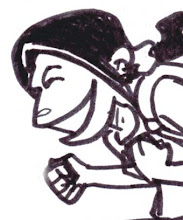 The dynamic and critically acclaimed indie rockers, famous for their transcendent melodies and captivating live shows, will share the Honda Civic Tour stage with Paramore this summer. Tegan Quin and Sara Quin were born in Calgary, Alberta, Canada on September 19, 1980. They are sisters. They began playing music together in high school. They were signed by Elliot Roberts and Neil Young to Vapor Records in 2000. Tegan and Sara are now signed to Vapor/Sire/Warner Bros.
The dynamic and critically acclaimed indie rockers, famous for their transcendent melodies and captivating live shows, will share the Honda Civic Tour stage with Paramore this summer. Tegan Quin and Sara Quin were born in Calgary, Alberta, Canada on September 19, 1980. They are sisters. They began playing music together in high school. They were signed by Elliot Roberts and Neil Young to Vapor Records in 2000. Tegan and Sara are now signed to Vapor/Sire/Warner Bros."I know it turns you off when I get talking like a teen," sings Sara Quin in "On Directing," a cut from the sixth studio album by Quin and her twin sister, Tegan.
Turnoff or not, talking like teens is precisely what once distinguished this Canadian duo from a nation (a continent!) of similar strummers: On early records -- their 1999 debut, Under Feet Like Ours, and 2004 breakthrough So Jealous -- Tegan and Sara's lovelorn ruminations had a deceptively casual verisimilitude, with lyrics that read like instant-message transcripts and arrangements that gave coffee-shop folk some new-wave fizz. The siblings' intricate harmonies even served to replicate the overlapping layers of tenth-grade conversation.
With 2007's The Con, though, Tegan and Sara began pushing their music in a more adult direction, toward something darker and less innocent. "Remember when I was sweet and unexplainable?" Sara asked in "Back in Your Head," over an anxiously tick-tocking guitar and murmuring organ. "Nothing like this person, unlovable."
That journey away from the juvenile continues on Sainthood, which the Quins say was inspired by "Came So Far for Beauty," the deeply resigned 1979 ballad by fellow Canadian Leonard Cohen. (For a maturing tunesmith, invoking Cohen is tantamount to a novelist describing her new book as an homage to Tolstoy.) "All I said to you, all I did for you, seems so silly to me now," Tegan concedes in "The Cure," a taut jangle-rock number whose title appears to acknowledge the moody keyboard line borrowed from the Cure's "Lovesong." Later, in "Night Watch," Sara insists, "I need distance from your body / I deserve this anguish on my house." Ever hear a teen utter those words?
Coproduced (as was The Con) by Chris Walla of Death Cab for Cutie, Sainthood has a thick, post-punk muscularity that's new to the duo. In opener "Arrow," Sara sings about "the feathers of an arrow," but there's nothing wispy about the track's juddering synth pattern. "Don't Rush" rides a grimy bass line Trent Reznor could admire, while "Alligator" sports a bottom-heavy, blue-eyed soul groove. "Northshore," in which Tegan admits that her "misery's so addictive," is two minutes of choppy fuzz-guitar freak-out.
Grown-up is a good look for the sisters, who write about romantic obsession much more compellingly than the majority of their peers; the tougher textures here lend weight to their descriptions of searching and not finding (or of searching and finding, and then wondering if the search was really worth all the trouble). In an interesting parallel to that thematic narrative, Sainthood marks the first time in their decade as a band that Tegan and Sara attempted to write with each other, instead of toiling separately and then fleshing out the results together. Apparently, the experiment didn't yield much; none of the 13 songs here came from a collaborative songwriting trip they took to New Orleans last year.
Yet listening to Sainthood -- to its odd structural disjunctions and shifting lyrical uncertainties -- it's difficult to imagine that the sisters would make records as powerful if they continued to try to work in that way. Tegan and Sara's music may no longer be the stuff of teens, but its strength remains in how much it feels like two people talking.
